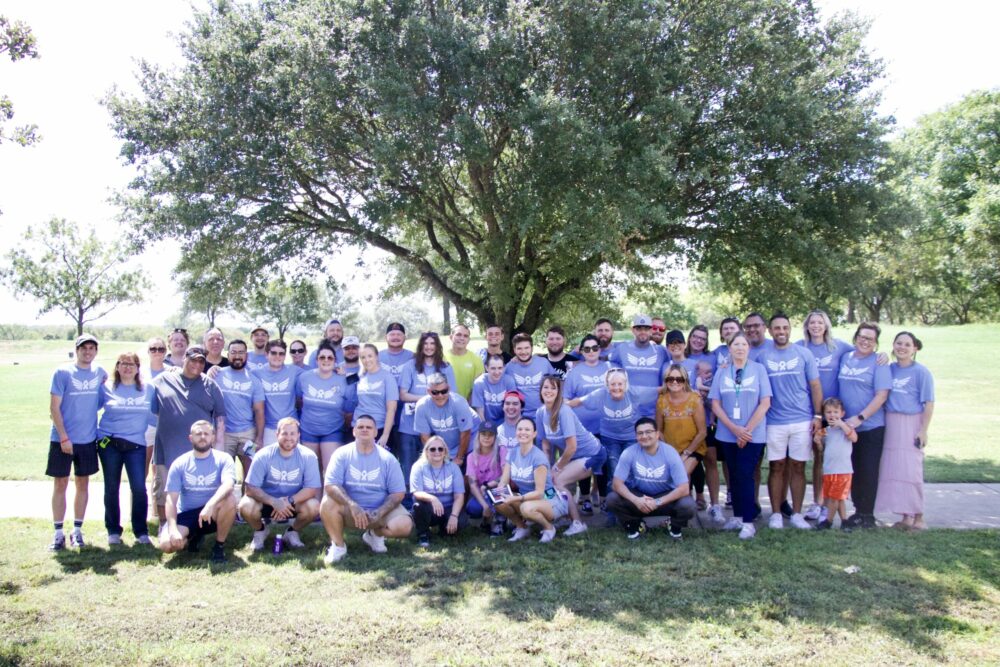Table of Contents
Once used by someone, the effects of the drug crack can, unfortunately, be immediately life altering and put the user on a dangerous and difficult path.
The coca plant is used to produce crack cocaine. The majority of the time, it is produced in Colombia, Bolivia, and Peru before being trafficked into other countries, primarily the United States.
Cocaine powder is heated with baking soda to create crack, which is then broken into tiny rocks. Its name comes from the way it crackles when heated and smoked.
Being a stimulant, cocaine causes a quick, strong sense of power and vigor. When crack stops working, the user becomes anxious and unhappy and seeks more of the substance to feel good again.
What Makes Crack Addictive?
One of the illegal drugs with the greatest potential for creating psychological dependence is crack cocaine. It greatly intensifies euphoria by stimulating the brain’s primary pleasure centers. Because crack is smoked and enters the bloodstream quickly, compulsive crack use emerges quickly after someone begins using it. A fast tolerance sets up, and the user soon finds that the same dosage of crack cocaine no longer produces the same high.
With long-term use, it might become difficult for your brain to produce dopamine independently. Crack produces a quick and intense high, making the user crave it more and more.
Crack Vs. Cocaine: What Makes Them Different?
Crack (a solid form of cocaine) is smoked with a glass pipe, while powdered cocaine is snorted or injected. Crack has immediate effects, although cocaine may take one to three minutes to take hold. Because cocaine is typically more expensive than crack, it has earned the moniker “rich man’s drug.”
Crack is sometimes combined with other ingredients like baking soda when sold to increase the weight and make it appear as though there is more of the drug.
While crack and cocaine may differ in a number of ways, their effects are typically comparable, and there is a significant risk of addiction with each of these drugs.
How Crack Is Used?
There are numerous methods to use crack. Smoking crack cocaine when it’s in rock form is the favored method. Snorting cocaine is the primary method, though it can also be injected or liquefied[1]. Crack smoking can destroy your physical and emotional health and cause heart attacks and seizures in even first-time users.
Effects Of Crack Use
Crack offers an immediate high, but it only lasts for 5 to 15 minutes. After that, the user will experience a comedown phase characterized by intense drug cravings.
Immediate Effects: The Intense High
The reason crack takes hold of a person so quickly is because of the all-encompassing intense high. A person who becomes dependent on crack may be willing to do anything, however unsavory or illegal, to get their hands on another dose.
The following are a few effects of crack:
- instantaneous high that lasts for five to ten minutes
- a diminished appetite
- higher heart rate
- a strong desire to use the drug
- increased awareness
- euphoria
Once you’ve developed a dependence, it is incredibly difficult to quit on your own.
Short-Term Side Effects of Crack Use
There are multiple short-term effects of crack one might experience. Anything from increased heart rate and dilated pupils to increased body temperature and severe agitation on the “come down.” However, these effects can become dangerous, even deadly.
The short-term effects of crack also include euphoria, higher heart rate, and overall positive feelings. Once the harsh comedown begins, within approximately 10 minutes, the user begins to feel depressed and may feel cold and get tremors, craving another hit.
Dangerous Long-Term Effects of Crack Use
The long-term effects of crack are dangerous. Crack users may develop significant respiratory problems, including coughing, shortness of breath, lung damage, and bleeding, in addition to the regular hazards associated with it[2].
Unfortunately, the side effects don’t stop there. With long-term use comes the potential for infertility, malnutrition, increased risk of heart attack, changes in blood pressure, and sudden death.
Psychological Effects of Crack Cocaine Use
Nobody is immune to the effects of crack addiction, regardless of race, gender, or socioeconomic position. Anyone who tries crack may be affected by the strong psychological urge to keep using.
A person’s mental health will also begin to suffer, which could result in psychosis. The psychological feature of anxiety sensitivity, which raises the chance of developing PTSD and worsens various mental health disorders, is more prevalent in crack-cocaine users.
Crack Withdrawal Symptoms
Someone who is physically and psychologically reliant on crack will experience withdrawal symptoms after discontinuing or weaning off the drug.
One’s withdrawal symptoms may vary depending on a variety of factors, including the user’s tolerance, metabolism, length and severity of addiction, and the presence of underlying mental health conditions.
Common signs of withdrawal include:
- Lack of motivation
- Strong cravings for crack
- Anxiety
- Trouble concentrating
- Confusion
- Paranoia
- Tremors
Factors For Increased Risk of Crack Addiction
While it’s difficult to predetermine who will be more susceptible to crack dependence, there are some underlying health risks that could be a factor. People who struggle with mental health become more predisposed to trying drugs as a means of feeling good. Other factors could be a lack of access to proper healthcare or an insufficient support structure that may prompt a person to turn to drugs like crack.
Warning Signs of Crack Cocaine Use
If you suspect someone you know of using crack or cocaine, there are some characteristics to be on the lookout for.
Here are some questions to think about if you believe someone you know is using crack:
- Does this person suddenly have financial issues?
- Has this person exhibited any criminal behavior?
- Have you noticed any strong personality changes?
- Has the person lost weight recently?
- Does the person seem agitated? Or mention any cravings?
Signs of A Crack Overdose
Due to the drug’s potent effects, even someone who takes crack for the first time is still at risk of overdosing. When crack is inhaled into the lungs, significant amounts of it enter the body right away.
The risk of an overdose is substantial since the user may raise the dosage to battle the effects of the strong cravings and withdrawal symptoms.
Crack overdose warning signals include:
- weak and sluggish pulse
- chest discomfort
- difficulty breathing
- Vomiting
- quick heartbeat
- chest pain
- Stroke
- Seizure
- Death
It’s important to understand the signs of a crack overdose. An overdose is a serious medical emergency that requires immediate assistance. If you or a loved one observe any signs of a crack overdose, call 911.
Treatment For Crack Cocaine Addiction
A person’s life, financial situation, and mental health may all deteriorate if they fall prey to the cycle of substance addiction. It’s critical to get treatment from a rehab facility or a reputable medical professional. Treatment options include detox, interventions, and rehab.
Detox
The highest chance of success when detoxing is under the care of a staff of medical experts who are familiar with your needs at an inpatient treatment facility. Although detox is a difficult and demanding process, you will have a secure outlet to avoid substance usage while in the care of a medical detox clinic.
Inpatient Treatment Programs
Inpatient treatment options give you a secure and stable team of medical professionals there to guide you through your recovery in a safe and secure environment. When going through inpatient treatment, you’re able to focus solely on your recovery with no distractions or negative influences.
Outpatient Treatment Programs
Attending an outpatient addiction treatment center is ideal for mild dependence or reinforcing what you learned during an inpatient treatment plan. Outpatient programming provides a solid platform for you to get the support you need with schedule flexibility.
FAQs Related To Crack
Here are some frequently asked questions related to crack and cocaine.
Can a person die from an overdose of cocaine?
In addition to having a negative impact on your relationships, finances, and health, cocaine can cause a fatal overdose.
How many people in the United States use crack on a daily basis?
According to research, 335,000 persons used crack in the previous month as of 2020[3].
What is the most common way to take crack?
Although there are various ways to consume crack cocaine, smoking is the most popular and well-known method.
What are the negative effects of crack cocaine?
People become dependent on crack for a reason. The effects of crack cocaine are first euphoric because it raises dopamine levels in the brain. Its effects on the brain and body cause the user to desire more of it.
After the exhilaration subsides, users may experience depression and rage. They might turn aggressive, uneasy, and paranoid. These emotions frequently cause users to crave another “hit” immediately.
Users occasionally report having a significantly raised heart rate, as well as convulsions and muscle spasms. Additionally, typical symptoms include dilated pupils, nausea, and faster breathing.
Crack has some other unfavorable side effects, such as:
- dilated eyes
- Restlessness
- Mood changes
- rough lips
- aggressive attitude
- Anxiety
- heart attack
- Insomnia
- Stroke
- a feeling of being bitten by insects
Safely Navigate The Negative Effects Of Crack With Addiction Treatment At Infinite Recovery
Addiction treatment is the opportunity to experience life fully. We know the challenges it can put on individuals and families if you or a loved one is battling crack-related substance abuse. A crack addiction has the potential to ruin professions and destroy lives.
It’s essential to reach out and get treatment for crack dependence. At Infinite Recovery, we warmly welcome and support individuals who are struggling with substance use. Get in touch with us right away to get on the path to recovery. At every step of the journey, we’ll be there for you.
Sources:
[1] National Drug Intelligence Center. (n.d.). Crack Cocaine Fast Facts. Retrieved from https://www.justice.gov/archive/ndic/pubs3/3978/index.htm on 2023, January 5
[2] NIDA. 2021, July 9. What are the long-term effects of cocaine use? Retrieved from https://nida.nih.gov/publications/research-reports/cocaine/what-are-long-term-effects-cocaine-use on 2023, January 5
[3]Elflein, J. Statista. 2021, November 5. Past month crack users U.S. 2009-2020. Retrieved from https://www.statista.com/statistics/612137/crack-use-during-past-month-in-the-us/ on 2023, January 5



















